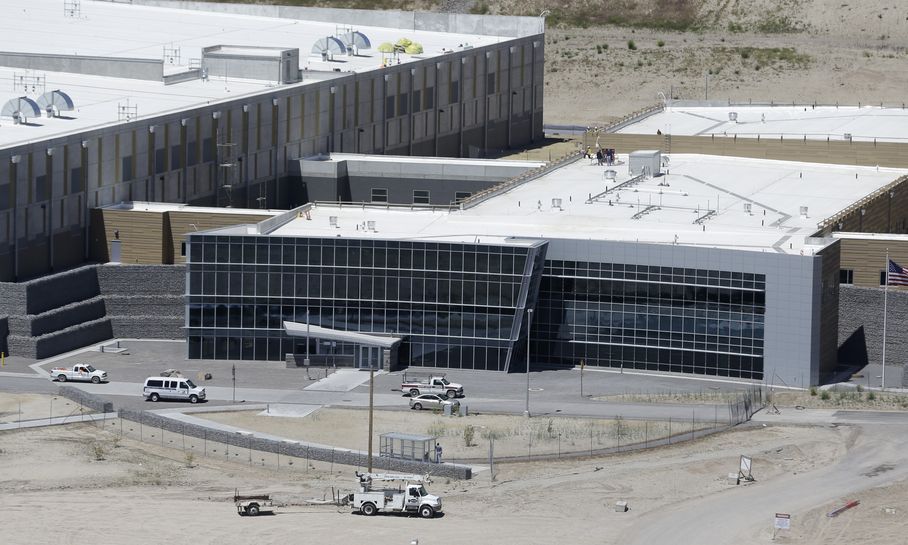NEW YORK — Former employees of the National Security Agency say the publishing of a court order asking Verizon to hand over all its phone calling records for a three-month period opens a new window on an operation that has been in place for years and involves all major U.S. phone companies.
Videos by Rare
“You can bet it’s all the other carriers, not just Verizon,” said Kirk Wiebe, a former analyst with the NSA. Weibe left the agency after the attacks of 9/11 in disgust, he says, over what he believes is a chronic failure to analyze large amounts of data effectively and with proper privacy protections.
Late Wednesday, British newspaper The Guardian published an order from the secret Foreign Intelligence Surveillance Court, requesting that Verizon give the NSA the details on every phone call on its landline and wireless networks on a daily basis from April 25 to July 19.
“These are routine orders,” said Thomas Drake, another former NSA employee. “What’s new is we’re seeing an actual order, and people are surprised by it.”
“We’ve been saying this for years from the wilderness,” Drake told news program “Democracy Now” on Thursday. “But it’s like, ‘Hey, everybody went to sleep while the government is collecting all these records.'”
Drake started working for the NSA in 2001 and blew the whistle on what he saw as a wasteful and invasive program at the agency. He was later prosecuted for keeping classified information. Most of the charges were dropped before trial, and he was sentenced to one year of probation and community service.
William Binney, who left the agency with Wiebe after complaining about its inefficiency, estimates that the NSA collects records on 3 billion calls per day.
Wiebe sees the large-scale data gathering as a sign that the NSA isn’t doing things right.
“To me, it reflects incompetence. If I cannot separate innocent from guilty, I’m incompetent,” Wiebe said in an interview with The Associated Press.
In the late 1990s, Wiebe and Binney designed a system that they said could analyze vast amounts of data while preserving privacy protections, but they were frustrated by the agency’s disregard for privacy and its choice of another system. The agency assures the public that it uses its data responsibly, but Wiebe believes the protections need to be coded into its software systems.
“There are technologies available to do it the right way,” Wiebe said. “We don’t need to sacrifice privacy for this.”
The NSA had no immediate comment. The White House on Thursday defended the agency’s need to collect the records.
The NSA’s original charter was to eavesdrop on communications between countries, not inside the U.S. That expansion of its mission appears to have happened after 9/11, but the agency has continuously denied that it spies on domestic communications.
In March, for instance, NSA spokeswoman Vanee Vines emailed an Associated Press reporter about a story that described the NSA as a monitor of worldwide Internet data and phone calls.
“NSA collects, monitors, and analyzes a variety of FOREIGN signals and communications for indications of threats to the United States and for information of value to the U.S. government,” she wrote. “FOREIGN is the operative word. NSA is not an indiscriminate vacuum, collecting anything and everything.”
Verizon, AT&T and T-Mobile USA, three of the largest phone companies, said they had no comment on the matter. A representative from Sprint did not respond to a message. Verizon’s general counsel emailed employees Thursday saying that the company has an obligation to obey court orders, but did not confirm the existence of an order.
James Bamford, a journalist and author of several books on the NSA, said it’s very surprising to see that the agency tracks domestic calls, including local calls. In 2006, USA Today reported that the NSA was secretly collecting a database of domestic call information. However, some phone companies denied any involvement in such a program.
Bamford’s assumption was that the uproar over a separate, post-9/11 warrantless wiretapping program and the departure of the Bush administration meant that the NSA had been reined in.
“Here we are, under the Obama administration, doing it sort of like the Bush administration on steroids,” he said in an interview with the Associated Press. “This order here is about as broad as it can possibly get, when it comes to focusing on personal communications. There’s no warrant, there’s no suspicion, there’s no probable cause … it sounds like something from East Germany.”
Bamford believes the NSA collects the call records at a huge data center nearing completion near Bluffdale, Utah. He estimates the center is designed to store data on the order of yottabytes, each of which is equivalent to a trillion 1 terabyte desktop hard drives. The agency has denied that the center is designed to hold domestic communications records.
Copyright The Associated Press




One Comment
Leave a ReplyOne Ping
Pingback:Chilling: “They Quite Literally Can Watch Your Ideas Form as you Type” | The Mental Recession